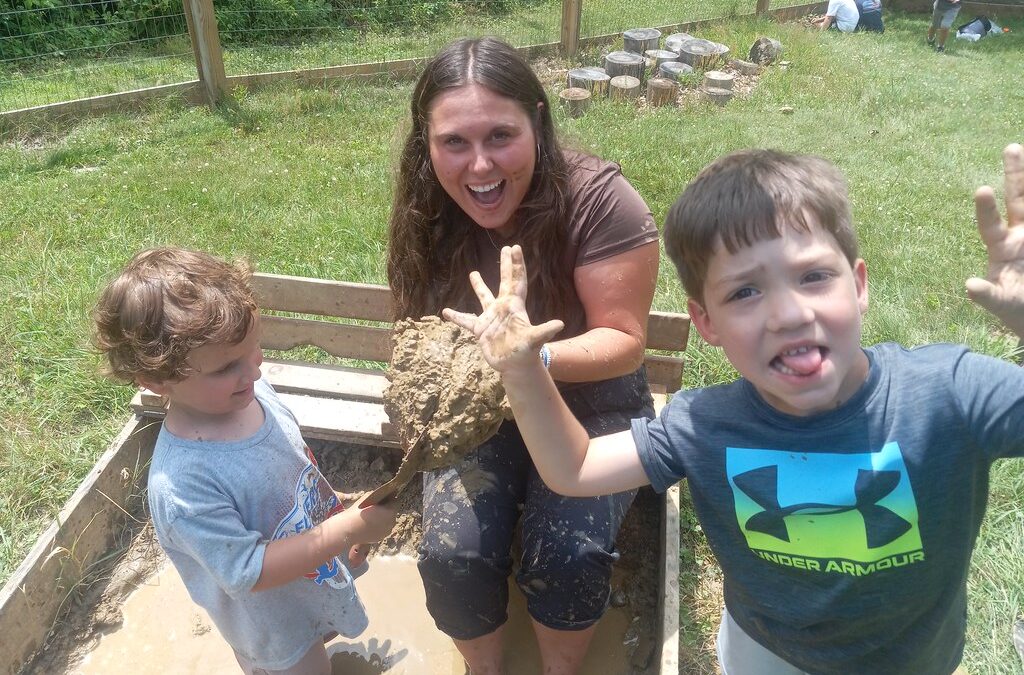By Mac Dawson, Seasonal Nature Educator
Unstructured outdoor play, once a defining feature of childhood, has significantly diminished over recent decades due to societal changes of debatable degrees of logic. This decline has serious implications for our kid’s physical, cognitive, and emotional development, and as with so many other things, it is increasingly tied to health concerns and developmental challenges.
In my youth, the best part of my school day was when it ended. My favorite subject in school was dismissal. This thrill wasn’t due to specific plans or pursued hobbies (I had neither), but rather, what I loved most was unstructured outdoor play and exploration, delving into my imagination and giving it a place to run free.
The decline of unstructured outdoor play has clear consequences for children’s physical health. Without the freedom to explore and play, children miss out on unregulated physical activities that help develop coordination, strength, and endurance. Instead, they are often engaging in indoor low impact activities, contributing to the rise of childhood obesity and other potential health issues.

Structured activities, while beneficial, do not offer the same opportunities for creativity and problem-solving as unstructured outdoor play. When left to their own devices, children invent games and scenarios, navigate conflicts, and develop intellectual autonomy. These moments of independent thinking are crucial for developing creativity, critical thinking, and resilience. The research has been conducted and the results are in: as mammals we learn best through play! Unfortunately, in today’s dotcom world of push button dopamine children have fewer chances to develop these skills on their own.
Technology, while also beneficial, plays a significant role in the decline of outdoor play as well. The allure of screens—whether through video games, television, or social media—has kept children indoors, where they miss out on the benefits of physical play and natural exploration. While technology provides entertainment, it lacks the depth of cognitive and emotional engagement that free-range play in nature provides. Spending time in natural environments fosters curiosity and a connection to the planet, which in turn, inspires a lifelong commitment to environmental stewardship. Without this bond, children may grow up less invested in the future of the natural world. I think we can acknowledge that the current condition of the climate could use as many stewards as it could get.

In addition, unstructured play fosters social and emotional skills vital for navigating relationships. It’s how we first learn to resolve conflicts, collaborate, and empathize with our peers. These experiences build emotional resilience and social intelligence, qualities that are harder to cultivate in heavily structured environments where well intended adults often intervene.
What can we do to counter the loss of unstructured outdoor play? As parents and educators, we must take steps to restore children’s connection with nature and independent exploration. We should make room for unstructured play in our routines, allowing children to explore their surroundings without constant oversight. Outdoor spaces, like backyards and local parks, provide excellent opportunities for free play. Schools can also play a role by incorporating nature-based learning and outdoor experiences into their curricula. Nature programs and green spaces help children interact with the natural world, fostering curiosity and environmental awareness. When we take our kids outside and let them explore, we give them an opportunity to let their natural sense of curiosity flourish and that drives the fun! We might try to answer such questions as “What’s under that log?”, “How many tracks can we find?”, or “What can we use to create art?”.
As someone who has worked in education and youth programs for years, I am familiar with the typical practices, priorities, and routines of day camps, after-school programs, and classrooms. While such programs all share common protocols, as well as a drive to do their best for children, I’ve since discovered a different approach since working at Audubon Community Nature Center. We believe that outdoor play is essential for children’s development—physically, emotionally, cognitively, and socially—and we facilitate this play in nature. Nature play, driven by children’s intrinsic motivation, encourages them to connect with the natural world and stimulates their imagination. Through unstructured outdoor experiences, we aim to provide children with the same sense of freedom and discovery that was once a hallmark of so many of our childhoods. Unstructured outdoor play is not just a pastime—it is a vital part of childhood that helps children discover who they are and how they relate to the world around them. As a society, it’s an investment in our future.
Audubon Community Nature Center builds and nurtures connections between people and nature. ACNC is located just east of Route 62 between Warren and Jamestown. The trails and outdoor facilities are open from dawn to dusk. The Nature Center is open from 10 a.m. until 4:30 p.m. daily except Sunday when it opens at 1 p.m. More information can be found online at auduboncnc.org or by calling (716) 569-2345.


Recent Comments